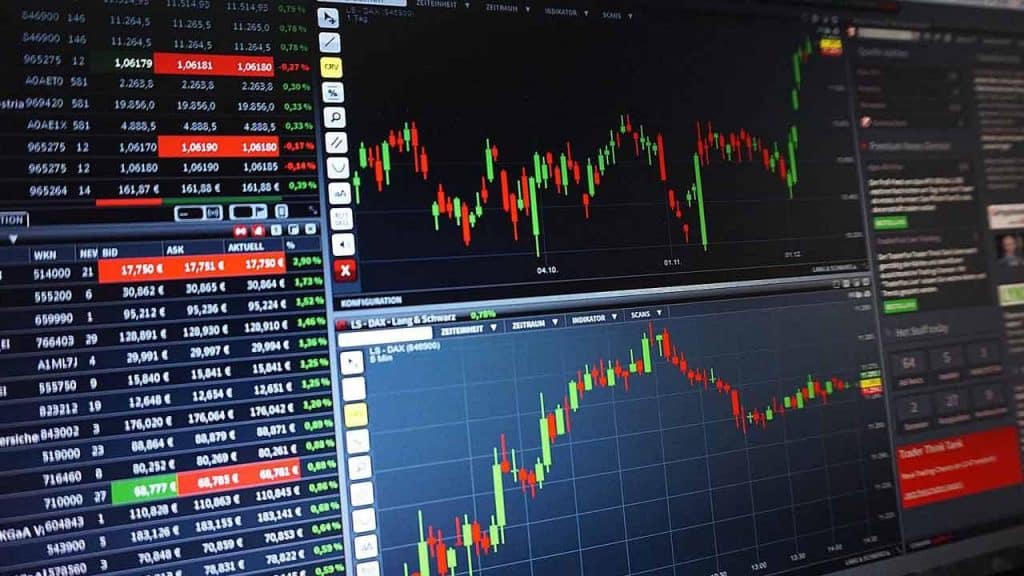Cryptocurrency exchanges are the heart of the crypto ecosystem. They enable most day-to-day trading in digital currencies by acting as traders’ intermediaries.
This article will look at what these exchanges are, the different types that exist, and what to look out for. It will also provide prominent examples of exchanges to get you started on your investments or trading journey.
Cryptocurrency exchanges are digital marketplaces. They act as locations for traders to buy and sell bitcoin or altcoins based on their market value. This can be done using either altcoins or a range of fiat currencies. In effect, cryptocurrency exchanges are online platforms that act as intermediaries between potential buyers and sellers of cryptocurrencies. These exchanges match potential buyers and sellers of cryptocurrencies, much like a standard stock exchange.

Transacting with cryptocurrencies on an exchange requires potential traders to register on the chosen platform. Afterwards, they must undergo various verification steps to authenticate the user’s identity. Once these processes are completed, funds must be transferred into the account to start trading.
As there are many exchanges out there, it’s worth noting that they choose their type of payment and withdrawal methods. These methods can include direct bank transfers, bank wires, credit or debit cards, PayPal, and a few others. This depends upon what the chosen exchange has provided as options for the trader to use.
Types Of Cryptocurrency Exchanges
There are a couple of types of cryptocurrency exchange out there worth looking into, which are entirely dependent upon the user’s needs.
Centralised Exchanges
The most well-known crypto exchanges are centralised exchanges. These are often the first port of call for traders new to crypto due to their better user experience. However, they are popular amongst all types of users. Cryptocurrencies can often be traded for fiat currencies, and the interfaces are more user-friendly than other types of exchange.
The positives of using centralised exchanges lie in the higher liquidity afforded by the potentially higher user base. This higher liquidity is directly coupled with the higher trading volume. These exchanges often provide faster transaction speeds, enabling a better user experience.
The negatives of centralised exchanges lie in the very things that make them a go-to in the first place. Firstly, as exchanges have custody of your private keys to enable trading, this lowers your sense of control and agency regarding your assets.
Secondly, due to the size of the assets on centralised crypto exchanges, they are more consistently maliciously targeted by third parties.
Thirdly, it’s worth researching before joining an exchange, as several centralised cryptocurrency exchanges have been accused of abusing their position of authority. Manipulation of numbers and insider trading have occurred and is worth watching out for.

Decentralised Exchanges
There is another variant of crypto exchange known as the decentralised exchange. They are those that function without a centralised authority monitoring day-to-day trading. The point of these exchanges is that they allow peer-to-peer trading of cryptocurrencies without an arbiter facilitating each potential transaction.
There are a few legitimate reasons and benefits for using decentralised platforms. Firstly, many traders feel that these decentralised exchanges more closely adhere to the decentralised nature of the cryptocurrencies being traded on the platform. The notion of a centralised cryptocurrency exchange seems to go against the ethos of using these currencies in the first place. Some decentralised exchanges also relax the need for excessive personal information.
Secondly, there is a potentially reduced risk of asset theft via hacking or other types of fraud from third parties. If users trade their crypto assets directly to other traders on the platform, there isn’t any worry about vulnerable cryptocurrency sitting on the exchange.
Thirdly, these decentralised exchanges are potentially less predisposed to fraudulent activities, such as price manipulation.
There are, however, risks with these platforms. Much like other exchanges, a sufficient baseline of user interest must be maintained to sustain them. This is necessary to ensure sufficient trade volume and liquidity and is, therefore, something to keep in mind when joining a new or flagging exchange.
While the above can be avoided with sufficient research, a further negative when using decentralised exchanges is potentially more worrisome. If a trader were to be a victim of theft or some other form of fraud, the nature of these exchanges means there won’t necessarily be the fallback of a central authority to rectify the problem.
Some Things To Be Aware Of
Be sure to research the reputation of any exchange you use, as well as the geographical restrictions that may apply. Below are two further points worth noting.

Wallets
Cryptocurrency exchanges and cryptocurrency wallets are distinct from each other. Wallets are the service that facilitates the secure digital storage of a user’s cryptocurrency. More precisely, they store the user’s private keys that enable access to the user’s cryptocurrency and authorise transactions.
Most cryptocurrency exchanges provide their crypto wallets for users, contributing to a better user experience. This service is usually provided at a nominal fee. However, this does mean that the exchanges will have secure possession of a user’s private keys. This isn’t usually a problem, but it could be an issue in the case of external influence, as some exchanges don’t treat security as their main concern.
If you feel confident, you can set up your wallet for long-term or large investment sums.
Fees
A user must take note of the fees built into the structure of the cryptocurrency exchanges. If a user makes deposits or withdraws from fiat or cryptocurrency, fees are payable depending on the payment method. If there is a higher risk of chargeback, the fees are higher. Using PayPal or a credit or debit card means you’ll need to pay more due to the ease with which funds can be reversed.
Furthermore, there are currency conversion fees to be aware of. If an exchange deals exclusively in a particular currency, and you are transferring another currency into the exchange, this conversion accrues extra fees on top of the regular transfer fees. This is why transacting on an exchange that accepts your preferred currency will be your best bet.
Transaction fees are another type of fee built into the crypto exchange ecosystem. Every completed sell or buy order on the exchange is accompanied by a fee based on the transaction volume. Therefore, taking note of an exchange’s transaction fees is important for any user.
Some Popular Exchanges
We’ll take a look at three well-known and popular exchanges below.

Coinbase
Coinbase is the most widely used cryptocurrency exchange in the US. It’s fully regulated and has a high user base.
It is among the safest exchanges, with very high liquidity and an easy-to-use interface. Coinbase also offers all available payment options. For this reason, it’s a good starter exchange for those new to crypto.
This exchange also comes with its wallet, although the private keys aren’t in the sole ownership of the user. Furthermore, there are higher premiums on transactions on this platform and no extensive altcoin offerings.
Some also find the regulation and security excessive according to their tastes. Despite these negatives, the regulation and security of Coinbase are worth the increased investment for many.
Binance
Binance is the largest exchange in the world, as of writing this, and specialises solely in the trading of altcoins.
Despite not dealing in fiat currency, Binance has a high user base with large liquidity. A significant amount of the world’s daily crypto trading is done on this exchange alone.
Binance has lower fees than other popular exchanges, with an incredibly large variety of altcoin options. The downside is that it’s pitched toward more advanced users and has a less user-friendly user interface.
Kraken
Kraken is amongst the oldest exchanges out there. It’s a popular exchange with various trading tools and an advanced order system.
Kraken accepts common fiat currencies along with cryptocurrencies. While it’s aimed toward advanced traders with margin and futures trading options, beginners will also find it accessible. Furthermore, the fees are relatively low.
While there have been historical issues with its security, it has improved this aspect considerably over time and is currently considered a safe bet.
Conclusion
This article has provided an overview of cryptocurrency exchanges, their types, and what to look out for, and listed a few prominent examples.
Remember to research before jumping on board a cryptocurrency exchange. A range of exchanges can suit your particular needs, whether you are new to crypto or an experienced trader.














